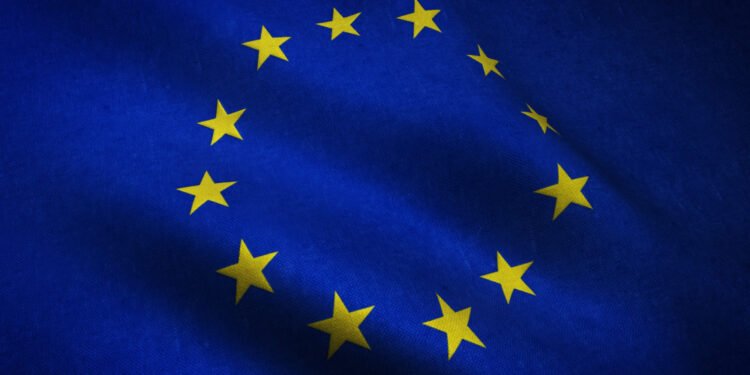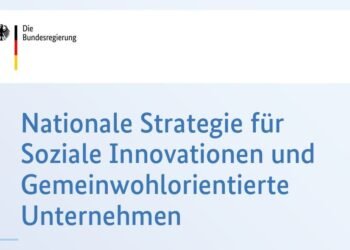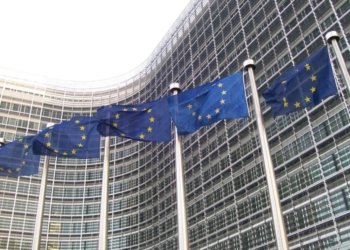In a groundbreaking move, the European Union is poised to introduce the initial phase of its revolutionary plan for the world’s first CO2 border tax.
This new regulation, set to take effect next month, mandates importers to meticulously report the CO2 emissions associated with products they sell within the European market, encompassing commodities such as steel and cement. Failure to comply with this requirement may result in substantial financial penalties.
A Revolutionary Approach to Environmental Responsibility
The core objective of this innovative regime is to safeguard the competitiveness of domestic EU industries by ensuring they are not outcompeted by foreign counterparts that have a larger carbon footprint. Simultaneously, this initiative encourages these industries to invest in environmentally-friendly practices and reduce their carbon emissions.
The Full Force of Change by 2026
Starting from 2026, when this regulation is fully implemented, imports into the EU will be subject to a CO2 fee that mirrors what European companies already pay within the EU’s carbon market.
Targeted Impact on Key Exporters
Several countries, including Turkey, Ukraine, China, and Russia, are expected to be the most profoundly affected by the CO2 tax. Notably, EU trade with Russia has diminished significantly since the Ukraine conflict. Industries operating within Europe, Ukraine, and Britain are bracing for minimal initial disruption but anticipate more pronounced repercussions upon the full-fledged launch of the CO2 levy in 2026.
A Comprehensive Reporting Phase
Commencing this October, the CO2 levy’s trial phase will mandate companies importing a range of goods—steel, cement, aluminum, electricity, fertilizers, and hydrogen—into the EU to comprehensively report the emissions associated with the production of these commodities.
Companies that fail to provide this data could face penalties of up to 50 euros per tonne of CO2. This stringent reporting requirement is set to lay the groundwork for the full-scale CO2 fee that will be applied to imported goods in 2026.
Industries Respond
In response to these impending changes, a spokesperson from the UK Steel industry expressed confidence in their ability to handle the initial reporting phase without significant disruption. Similarly, ArcelorMittal Kryvyi Rih, a subsidiary of steelmaker ArcelorMittal based in Ukraine, stated that they are well-prepared for compliance.
However, they expressed concerns regarding the financial implications of adaptation and the competitiveness of Ukrainian products by 2026, citing limitations on investments in decarbonization due to wartime conditions.
Exemptions and Climate Alignment
It’s important to note that the border fee will not be applicable to imports from countries that maintain a CO2 price equal to that of the EU. This alignment with EU climate policies could prove advantageous to Ukraine as it aspires to join the EU.
Additionally, the EU levy permits exemptions for countries experiencing unprovoked situations that result in infrastructure damage, although the effectiveness of this provision in addressing Ukraine’s unique situation will be assessed in due course.
Brussels’ Aspiration: A Lever for Emission Reduction
Brussels envisions that this border levy will utilize the immense market influence of Europe to encourage foreign companies to take action to reduce emissions and thus avoid the CO2 fee. Nevertheless, foreign companies and governments, including China, have raised concerns about the potential repercussions of this policy.
China’s Perspective
Jiang Wei, the Secretary General of the China Iron and Steel Association, warned that the EU’s carbon border tax could increase the price of Chinese steel exports to the EU by 4-6%, as reported by state media. Despite these concerns, the Association did not provide additional comments to Reuters’ inquiry.
In a WeChat post dated August 31, Chinese steel manufacturer Baowu Steel Group characterized the EU levy as a “huge challenge.” They pointed out that approximately 90% of steel production relies on capital-intensive processes, which require substantial investment and time for technological upgrades.
Addressing Data Gaps
Importers that are unable to obtain precise emission data from their suppliers will initially have the option to use default values to calculate the CO2 footprint of their goods. The deadline for the first set of reports is scheduled for January.
Industry Calls for Stringency
European industries have urged Brussels to ensure that this leniency regarding default values is temporary. They emphasize that the transitional phase must be utilized to close potential loopholes and establish more robust regulations to combat circumvention.
As the full implementation of the CO2 levy approaches in 2026, concerns about circumvention are expected to intensify, particularly as Brussels gradually phases out the free CO2 permits currently granted to European companies to help them reduce their carbon emissions.





